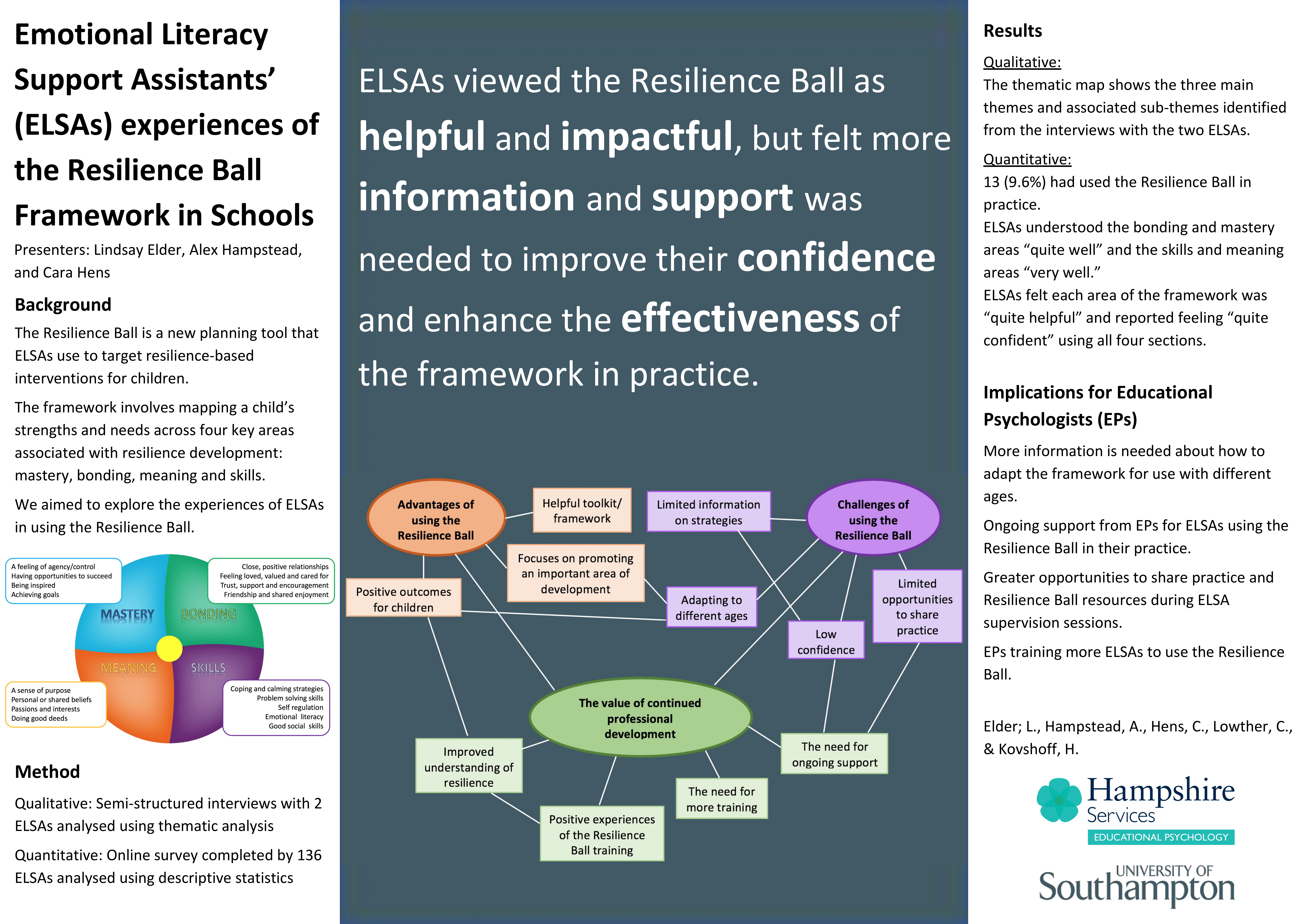Assignment type: Thesis
Author: Ashleigh Shuttleworth
Submitted: June 2018
Abstract
The review investigated what school based interventions currently exist for supporting pupils sense of school belonging (SoSB). The search yielded 20 articles to be included in the review, and from these studies, 21 different intervention programmes were identified. Whilst all interventions aimed to increase SoSB, they were variable in many other aspects. To support synthesis of results, interventions were categorised as universal or targeted programmes and further divided based on common themes. Twelve studies reported a positive and significant effect of experimental condition on SoSB scores and one study reported a negative effect of experimental condition. Results support the notion that SoSB is malleable and can be enhanced through intervention support. All studies appear to incorporate aspects of teacher support and/ or personal characteristics, identified as having the largest effects with SoSB within Allen and colleagues’ meta-analysis (2016). In addition, the data presents a trend towards targeted interventions being more effective than universal interventions, presenting particularly positive effects of SoSB for ‘atrisk’ students. Implications are discussed in regards to the utility and effectiveness of having SoSB interventions being led by members of the school community, and in regards to the potential negative effect of peer contagion when running a group intervention with ‘at-risk’ youth.
The empirical paper examined the effectiveness of two experimental school-based diary conditions (gratitude diary and appreciation diary) on the promotion of SoSB and positive affect (PA), in comparison to a control condition (event diary). Participants aged 7 to 11 years (M = 8.76) were recruited from five primary schools in the South of England (N = 287). The intervention was carried out as a class, with pupils randomly allocated to either the gratitude, appreciation or event diary condition. Participants completed the diaries daily for three weeks, leading to 15 possible diary entries. Measures of gratitude, SoSB and PA were obtained at pre-intervention, postintervention and at a three-week follow-up, in addition to a pre-intervention measure of nostalgia proneness. Findings revealed that the intervention had been unsuccessful in manipulating gratitude, and ANOVAs for SoSB and PA revealed no significant effect of condition. However, a moderate positive correlation between gratitude, SoSB and PA change scores was noted, suggesting the existence of a relationship between change in gratitude and change in SoSB and PA. Possible explanations for the lack of condition effect in the current study are presented, in addition to limitations of the study in regards to the validity of the gratitude measures used and fidelity to intervention conditions.





